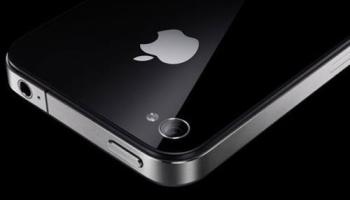

The Apple iPhone 5 continues to draw endless speculation about its design and features, but now a report has suggested that it’s the device’s chipset that could bring about a major change.
The iPhone’s incompatibility with Time Division Synchronous Code Division Multiple Access (TD-SCDMA), a popular wireless standard unique to China, is for now preventing Apple from attaining greater market share in the world’s largest smartphone market, according to a 23 August from IHS.
“Among all the international smartphone brands competing in China, Apple is the only one not offering a product that complies with the domestic TD-SCDMA air standard,” Kevin Wang, director of China electronics research at IHS, said in an 23 August statement. “For Apple, this is a huge disadvantage, as TD-SCDMA represents the fastest-growing major air standard for smartphones in China, with shipments of compliant phones expected to rise by a factor of 10 from 2011 to 2016.”
Of the smartphones that shipped to China from January through June, the majority – 20.8 percent – were made by Samsung, which likewise now dominates the US market and overall phone market.
Lenovo was the second-most-popular brand, with an 11 percent market share; followed by Coolpad, a domestic brand, with 10.4 percent; Huawei, with 9.8 percent; and Nokia, with a 9.1 percent share.
Sixth place went to ZTE, with its 8.4 percent share, and behind it came Apple, with a 7.5 percent slice. While it’s a small-enough share to back IHS’ assertion that Apple isn’t doing all it can to compete, given the scale of the Chinese market, it’s still enough to make China Apple’s second-most-lucrative market.
During Apple’s 24 July earnings call, Apple CEO Tim Cook said that greater China represented two-thirds of Apple’s revenue in the Asia-Pacific region during its fiscal third quarter. Those two-thirds represented $5.7 billion (£3.6bn), which was down from $7.9 billion (£5bn) the quarter before, due to “changes in the channel inventory, not the underlying sell-through of the iPhone,” said Cook.
Cook added, “In terms of iPhones in general in mainland China, we were incredibly pleased with our results. We were up over 100 percent year-over-year. And as you probably know, just last Friday … we launched our new iPad in China after we resolved the iPad trademark issue.”
The IHS report also points out that Apple is distancing itself from consumers by not offering a less-expensive iPhone option. Apple’s lack of a $99 (£62) iPhone, and Samsung’s delight to fill that hole, “helped Samsung to reclaim its leading worldwide position in the global smartphone market, six months after losing the top spot to Apple,” said the report.
Low end isn’t Apple’s game, and IHS acknowledges this. But that “doesn’t change the fact,” said Francis Sideco, an IHS senior principal analyst, “that Apple will need to find a way to access a larger portion of the Chinese smartphone market.”
The Apple team seems to have decided that their strategy for this will be to keep doing what they do.
During the earnings call, an analyst noted that a good majority of the smartphones being purchased in “China and other emerging countries” are under $300 (£189), and in many cases under $200 (£126).”
Cook responded, “I’m very pleased that we were able to grow our iPhone sales over 100 percent last quarter. So, yes, I feel very, very good about that … so we’re going to stick to our knitting and make the best products, and we think that if we do that, we’ve got a very, very good business ahead of us. So that’s what we’re doing.”
What do you know about the iPhone? Find out with our quiz!
Deliveries of Telsa's 'bulletproof' Cybertruck are reportedly on hold, amid user complaints side trims are…
New feature reportedly being developed by Apple for iOS 19, that will allow AirPods to…
Binance BNB token rises after WSJ report the Trump family is in talks to secure…
After failed Amazon deal, iRobot warns there is “substantial doubt about the Company's ability to…
Community Notes testing across Facebook, Instagram and Threads to begin next week in US, using…